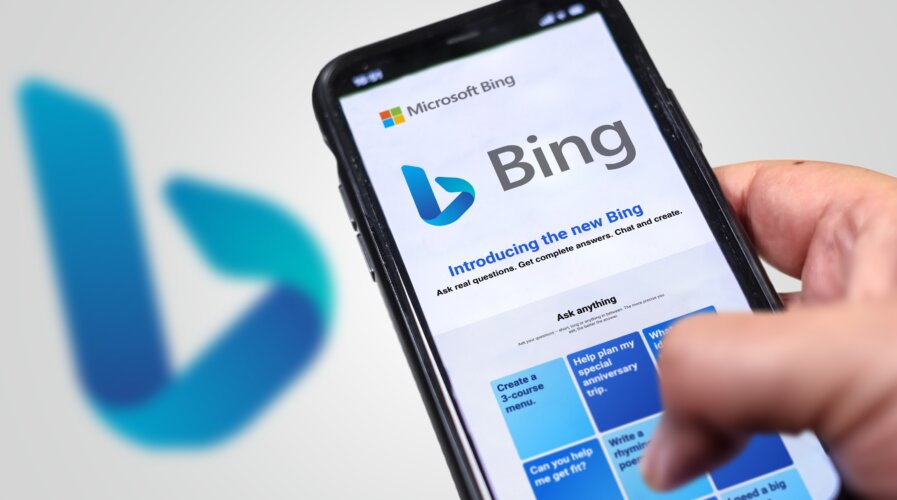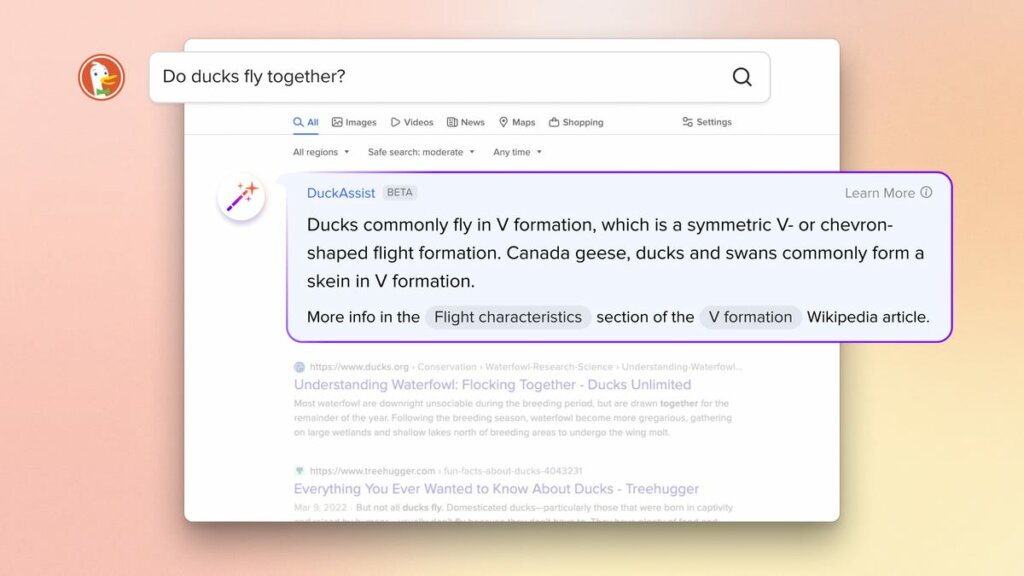
Will Microsoft cut off rival AI search tools from the access to its Bing search index?Source: Shutterstock
Why does Microsoft want to “cut off” rival AI search tools from access to its Bing search index?
- Microsoft has told at least two customers that access to the company’s internet search index will be cut off if they continue to use it for their AI chatbots.
Since 2019, software maker Microsoft Corp has made its Space Partition Tree And Graph (SPTAG) algorithm, used in its own Bing search engine, available to all as an open-source GitHub project. The software is a library Microsoft developed to use better all the data it collected and AI models it built for Bing.
It open-sourced that critical piece of what makes its Bing search services able to return search results to its users quickly. Browsers like Yahoo, DuckDuckGo, You.com, and Neeva Inc have been using that open-sourced software to power their search results. Since Microsoft has triggered hype around AI chatbots by incorporating OpenAI’s ChatGPT into its products and services, rivals are quickly doing the same.
Even Alphabet Inc.’s Google publicly released Bard, its conversational AI product, soon after Microsoft revealed that Bing was using GPT-4, OpenAI’s latest language model. But that’s just not it – DuckDuckGo, a search engine that emphasizes privacy, also recently introduced a feature that uses AI to summarize answers to search queries called DuckAssist.

People who use DuckDuckGo browser apps or extensions can check out DuckAssist in beta now. Source: DuckDuckGo
Launched at the beginning of this month, DuckAssist is free and available on the DuckDuckGo web browsing apps for phones and computers and the company’s browser extension. Even You.com and Neeva Inc. — two newer search engines that debuted in 2021 — have debuted AI-fueled search services, YouChat and NeevaAI.
The fact that all search engines – besides Microsoft and Google – are rushing to jump onto the AI chatbot bandwagon proves that AI-powered search engines may be the future.
Are those search engines using Microsoft Bing’s data for their AI chatbots?
The simple answer is yes. Since DuckDuckGo, You.com, and Neeva’s regular search engines all use Bing to provide some of their information, and it would work the same for their search chatbot. With that in mind, according to a Bloomberg report, Microsoft has told at least two customers that using its Bing search index to feed their AI chat tools violates the terms of their contract.
Quoting someone who spoke anonymously because they were discussing a confidential dispute, Bloomberg said Microsoft might go as far as terminating the licenses providing access to its search index. “We’ve been in touch with partners who are out of compliance as we continue to enforce our terms across the board consistently,” Microsoft said.
The software maker said they’ll “continue to work with them directly and provide any information needed to find a path forward.” Simply put, if they were cut off from Microsoft’s index, smaller search engines would have to find an alternative which is a challenging feat. So far, Microsoft and Google are the only two companies that index the entire web, but Google’s limitations on its index have led nearly all other search engines to use Bing.
Here’s where it gets even more interesting.
According to statistics by Similar Web, Google leads the search engine market, dominating it by a whopping 90.88% in February 2023 alone. Yahoo comes in second place with 3.18% and Bing only comes in third with a mere 2.98% control of the search engine market. DuckDuckGo and other search engines make take up a small chunk of the remaining percentage.
So, is Microsoft trying to reduce the competition by taking on the smaller players and increasing its market dominance before trying to have a go at Google? Only time will tell. For now, Microsoft still has a long way to go if it wants to increase its search engine users.
READ MORE
- The criticality of endpoint management in cybersecurity and operations
- Ethical AI: The renewed importance of safeguarding data and customer privacy in Generative AI applications
- How Japan balances AI-driven opportunities with cybersecurity needs
- Deploying SASE: Benchmarking your approach
- Insurance everywhere all at once: the digital transformation of the APAC insurance industry


